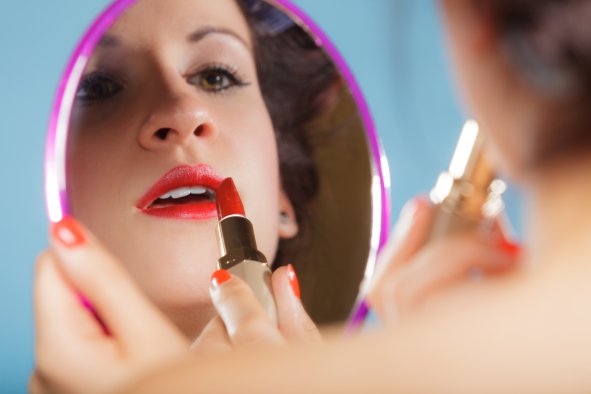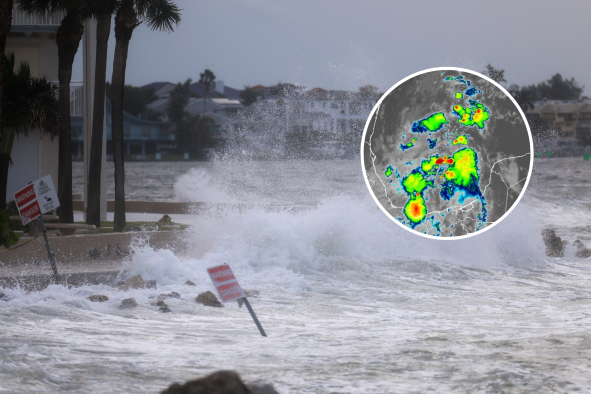Most Americans are negatively impacted by daytime sleepiness in at least one area of their life, according to a new study.
More than half of respondents (54 percent) to an American Academy of Sleep Medicine survey said they usually got too little sleep. AASM recommends that adults sleep for seven or more hours per night regularly.
"Daytime sleepiness is when you struggle to stay awake and alert during the day, leading to an overwhelming feeling of needing to sleep or unexpected moments of drowsiness," Dr. Alexandre Abreu, sleep medicine physician at the AASM, told Newsweek.
"It's important because it can impair your cognitive function, lower productivity, increase the risk of accidents and harm both your mental and physical health," Abreu said.
In the online survey of 2,006 U.S. adults, 47 percent of respondents said that sleepiness negatively impacted their productivity, and 31 percent said their quality of work suffered due to feeling sleepy.
Compared to women, men were 13 percent more likely to say that their work performance was negatively affected when they were sleepy.
More than a third (38 percent) said that daytime sleepiness harmed their mental health, and 24 percent said it impacted their relationships with family and friends.
Psychologist and sleep medicine specialist Dr. Jade Wu, who is not affiliated with the AASM study, told Newsweek that there are many potential reasons for daytime sleepiness, including insufficient nighttime sleep, sleep disorders such as sleep apnea or narcolepsy, medication side effects, shift work, or—in a small number of cases—sleepiness being a sign of a neurological disorder or its early stages.
"Sometimes people simply don't have enough opportunity to sleep, either by choice or because their work or family obligations don't leave them with enough time to sleep," said Wu.
"Sometimes we get enough opportunity to sleep, but our sleep quality is poor, so even with enough quantity, we don't get the quality needed.
"Poor sleep quality could be due to a sleep disorder, e.g., obstructive sleep apnea; environmental disruptions, e.g., loud noises or bright lights; or other problems like nightmares," she said.
The AASM survey found that daytime sleepiness affects younger generations more than older respondents.
Ninety percent of Gen Z respondents, aged 18 to 27, said that daytime sleepiness affected their daily lives, compared to 87 percent of millennials, aged 28 to 43; 84 percent of Gen X, aged 44 to 59; and 68 percent of baby boomers, aged 60 to 78.
"Healthy sleep habits are key to tackling daytime sleepiness," said Abreu. "We recommend getting at least seven hours of sleep each night and sticking to a consistent sleep schedule.
"It's also important to create an environment conducive to sleep, such as keeping the room dark, quiet and cool, and to limit caffeine and alcohol, especially in the hours before bedtime."
Both Abreu and Wu also said that, for people whose sleep did not improve despite good habits, it might be worth considering seeing a professional.
"Often, it's not the sleep hygiene that is the issue," said Wu. "No matter how good your sleep hygiene is, having sleep apnea is going to be terrible for sleep quality and quantity.
"Having frequent nightmares of sleep timing inconsistencies will disrupt sleep quality, too.
"And, if there's an underlying neurological disorder that's causing daytime sleepiness, sleep hygiene will also not be enough."
Many of the respondents said that sleepiness affected their ability to function well during the day, with 34 percent indicating that it negatively impacted their memory and mental recall, and 16 percent reporting that their reaction time while driving was negatively impacted too.
Wu told Newsweek how to decide whether daytime sleepiness was an issue that warranted professional help.
"First, make a distinction between 'tired' and 'sleepy,'" she said. "If you're tired, you may simply need more hydration, rest, nutrition, social interaction, mental stimulation, change of scene, etc.
"But if you're sleepy, like you have trouble staying awake during the day, then it's worth seeking medical attention, because this usually indicates that something is wrong.
"If you keep to a siesta or napping culture, it's fine to feel sleepy during a regular afternoon 'dip', but [you] should feel alert the rest of the day," Wu said.
Research for AASM was carried out by Atomik Research, an independent market research agency, in May 2024.
Do you have a tip on a food story that Newsweek should be covering? Is there a nutrition concern that's worrying you? Let us know via science@newsweek.com. We can ask experts for advice, and your story could be featured in Newsweek.
Disclaimer: The copyright of this article belongs to the original author. Reposting this article is solely for the purpose of information dissemination and does not constitute any investment advice. If there is any infringement, please contact us immediately. We will make corrections or deletions as necessary. Thank you.



